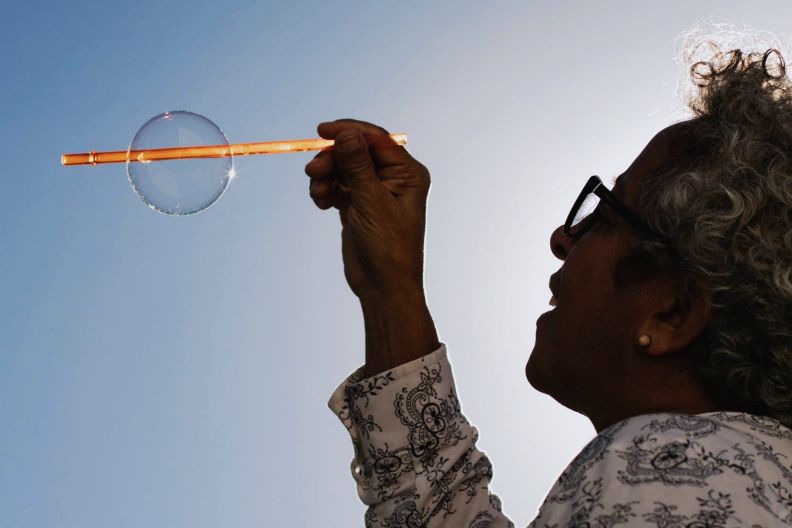Experience matters for action on dementia
A new national plan includes the goal “to engage and inform the community to promote awareness and inclusivity”.

This week is Dementia Action Week, and National Seniors is launching not one but two new research reports about dementia.
Both are based on responses to questions in our 12th National Seniors Social Survey, conducted in February this year.
The Department of Health and Aged Care is currently finalising the National Dementia Action Plan, which is anticipated to be in place soon.
Our reports feed right into the plan’s goals, one of which is “to engage and inform the community to promote awareness and inclusivity”.
The Australian Institute of Health and Welfare’s 2023 Dementia Awareness Survey showed Australians generally know little about dementia – including its causes, symptoms, risks, prevention, and ways to interact with people who have dementia.
Our research complements that survey by focusing specifically on older people’s dementia awareness and experiences, rather than those of the broader population.
The results of most of our survey questions are covered in our first report, Dementia experience, planning and worry: Perspectives of people aged 50-plus living in the community.
We asked respondents:
If they have personally known someone with dementia, including if they’ve had a dementia diagnosis themselves
Whether respondents without dementia worry about developing it
If they would consult a health professional regarding any concerns about memory or thinking skills
Whether they have planned for a future with dementia for themselves or a loved one
If they have sought out information about dementia (and if so, where).
Seven out of 10 of the 4,882 respondents did have personal experience of dementia – whether a friend, family member, or themselves.
Our statistical analysis showed this strongly influenced whether they had sought out information and if they had planned for a future with dementia. Experience matters when it comes to dementia action.
A large proportion of respondents (83%) said they would consult a health professional if they had concerns about their memory or thinking skills. Women and people in better health were more likely to do so than men and people with poorer health.
Six out of 10 respondents were worried to some extent about developing dementia.
Free-text comments elaborating on reasons for worry showed that worriers focused more on the presence of dementia risk factors in their lives than non-worriers did.
Most noteworthy, many worriers perceived they were at high risk because they have family members who developed the disease. This is a very common view, but it is older age rather than genetics that is the main risk factor for developing dementia.
This is just one point illustrating how important it is to raise awareness about dementia, including risk factors and preventative measures.
Encouragingly, our question about information seeking showed that almost half the respondents had sought dementia information.
While 39% of these went straight to the authority in the form of Dementia Australia, many consulted other sources too or simply performed an online search about it.
This speaks to the need to ensure the prominent presence of reputable, up-to-date information sources, to ensure we’re all getting what we need.
National Seniors has provided this research report to the Department of Health and Aged Care and to Dementia Australia. We’ll continue to use it to support campaigns for action on dementia.
Our second report, “People with dementia can still be happy”: 10 insights from older people about dementia, is drawn from a single survey question.
We asked respondents if there was anything they’d learned about dementia from personal experience or other sources that they would like people to know about.
In all, 1,485 people took the time to write a comment sharing what they’d learned.
Our analysis grouped these into 10 themes, each representing a unique insight, for example:
How to act when a person has dementia
What dementia feels like
There are impacts on others
Dementia is diverse
Identify it early.
The report lets respondents speak for themselves, with just under 10% of their comments (139 total) reproduced in full.
People shared their stories of delight and despair, plus their handy tips and hard-won advice. They range from detailed observations to succinct remarks. We hope readers will find the report useful, comforting, and insightful, whatever level of experience you have with dementia.
We thankfully acknowledge everyone who wrote a comment, even though we were unable to reproduce them all. All contributed to the final report as part of the 10 themes.
The report can be quite an emotional read, with some comments conveying deeply moving and heartfelt experiences. Here are two examples that moved us:
“Laugh with the person. I have long "conversations" with a special friend with dementia about nothing but we laugh a lot and that is so good for her and for me. We still have [a] relationship but sharing is just being there and communicating in a very different way.”
“When dealing with a person with short term memory loss it is important to remember that they are not forgetting intentionally. Therefore, it is counter productive to chastise them for doing things inappropriately or when they have been told not to do them or forget to do things they have been asked to do. That just causes the person to [get] defensive or upset or angry or withdrawn. The person who needs to change is the non dementia person who needs to find ways of reacting creatively. [For example] ,when my late wife had front temporal dementia (and MND) which affected her judgement in terms of consequences of actions she needed to use a walking frame as she also had mobility issues because of the MND… On entering our dining room to go and sit down for a meal she would push the frame away whilst still several steps from the table thinking it would be in the way, and so be in danger of falling. The first couple of times this happened I gently scolded her and gave her back the frame until she reached the table or chair to hang onto. I realised that it was much better to light heartedly say, "Oh I see you want me to take your arm and help you to sit-down!" this always made her smile, and we would walk arm in arm to her chair.”
Beyond our research reports, if you would like to find out more about dementia, many of our respondents identified two helpful resources in particular:
Several highlighted Dementia Australia as very useful to them, with one commenter saying they “do fantastic courses and have a decent level of documentation for use” and another writing they “have a wonderful library and some of the biographies are excellent”.
Some also highlighted the Understanding Dementia MOOC (free online course), produced by the Wicking Dementia Research and Education Centre at the University of Tasmania, as a great educational resource.




